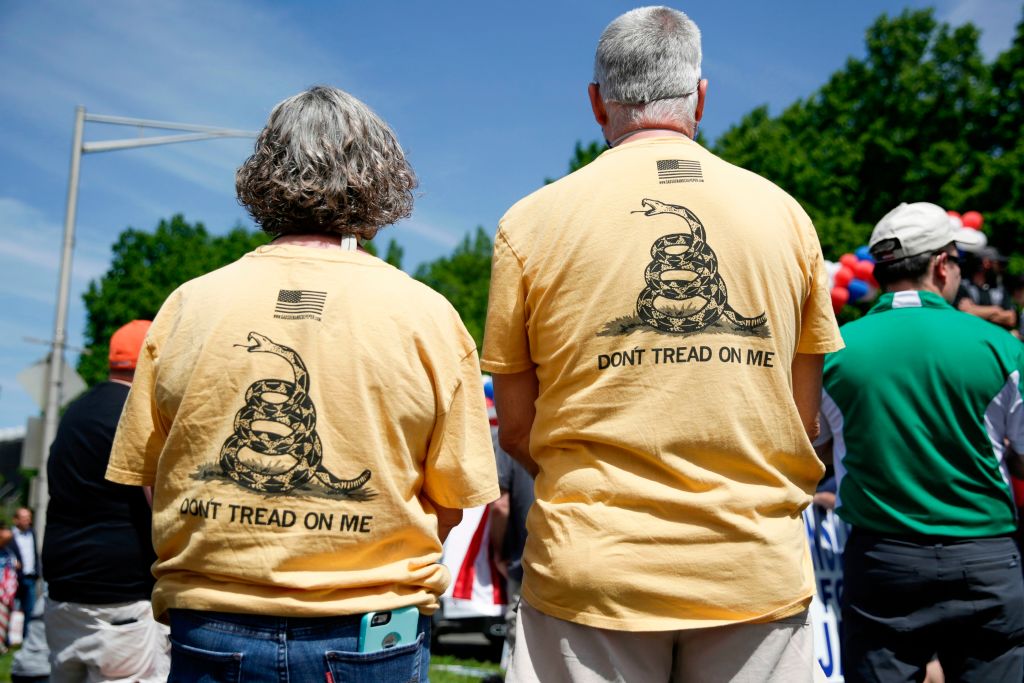A libertarian moment?
Are the libertarians winning? Some seem to think so. In fact, a slew of recent op-eds have contemplated whether the backlash to government overreach during the pandemic means we are living in a new “libertarian moment.”
“A funny thing happened on our way to democratic socialism: America pushed back,” writes Scott Lincicome for the Dispatch. “Across the country, in all sorts of ways, Americans reacted to the state’s activism, overreach, incoherence, and incompetence and…kinda, sorta, embraced libertarianism.” He cites columns by Gerard Baker and Samuel Goldman making similar arguments.
There’s plenty of evidence to back up the theory: from the failure of Build Back Better to the many mistakes of top-down policymaking throughout the pandemic. When it comes to education, a school-choice revolution really seems to be underway. School closures, an essentialist approach to the way race and history are handled in the classroom and a retreat from the traditional commitment to merit have radicalized parents against teachers’ unions and public school bureaucrats. What could be more libertarian than that?
Throw the Canadian truckers into the mix too, to many a heroic example of working-class direct action done in the name of scrapping a government regulation.
And why not add to that list the burgeoning private-sector space race between tech billionaires, something straight out of a fictional libertarian utopia or dystopia (depending on your tastes)? Then there’s crypto-currency and the weird world of web3: anarchic in both spirit and substance.
For the uninitiated, “the libertarian moment” is a call back to claims in the late 2000s and 2010s that, whether it was drug legalization or the gig economy, America was entering a new phase of blossoming individual freedom. That all came crashing down with Trump’s rise, his 2016 campaign being a repudiation of much of the cheery libertarian optimism that had come just a few years earlier.
The libertarian movement may have been in self-imposed exile ever since. But the new right vanguard who saw Trump’s ascent as an opportunity to definitively repudiate libertarian ideas have been sorely let down by the voters. The Trump administration did not turn decisively against the market. Protectionist on trade and restrictionist on immigration, it also cut taxes and deregulated. The former president ended up leading a merry band of what Matthew Walther has invaluably identified as “Barstool conservatives”: libertarian and permissive in impulse even if they couldn’t care less about the harm principle or Ludwig Von Mises.
But talk of a libertarian moment feels, at best, premature. In many important debates, the libertarians are losing. Take big tech, where the prevailing mood on both sides of the aisle is hostile to the behemoths of the internet age and eager to use the tools of the state to counteract what they see to be an inappropriate amount of political and/or economic power. Or consider policing and crime: the progressive libertarianism of defund the police is political kryptonite in a country facing a violent crime wave.
Moreover, how much of a win for libertarianism is it that the Democrats were only a few senators away from passing an unprecedentedly massive spending package? Republicans may have been reassuringly hostile to the idea, but the prospect of a serious attempt to reassess the role and scope of the state in the US economy feels remote.
Meanwhile, traditional libertarian principles are deployed very selectively by the right today. Take vaccine mandates: by-the-book libertarians argue that business owners should be free to set whatever terms of employment they like, including insisting on vaccination. But such an approach is dismissed as stuffy and naive by those who want to fight fire with fire and ban vaccine mandates, public or private, altogether. A similar debate exists around critical race theory in the classroom: ban a noxious idea or allow students to debate its merits?
But the real reason I think talk of a libertarian moment misses the point is that libertarianism seems, at best, peripheral to many of the anxieties and problems that America faces. At home, the pandemic has frayed America’s social fabric. The crisis in the country’s institutions continues, with cynicism (much of it justified) and showmanship beating out constructive, careful stewardship everywhere from Congress to the local school board. Whatever one wants to do about Big Tech, it’s clear that the internet age has not worked out the way techno-optimist libertarians predicted. It has too often delivered insecurity and isolation, not liberation and empowerment. Overseas, America faces fearsome threats and the difficult realities of life in a multipolar world.
The pandemic may have infused US politics with a surprising (and healthy) amount of anti-state skepticism, but as Covid fades and the conversation moves on, I suspect that the outlines of a libertarian moment on the horizon will, once again, prove to be a mirage.
*** Sign up to receive the DC Diary in your inbox on weekdays ***
Biden’s Ukraine warning
Joe Biden has told Americans in Ukraine to leave the country. “We’re dealing with one of the largest armies in the world. This is a very different situation, and things could go crazy quickly,” he said in an interview with NBC’s Lester Holt, adding that there was not a scenario that would cause him to send US troops to rescue Americans. “That’s a world war when Americans and Russia start shooting at one another. We’re in a very different world than we’ve ever been.”
The warning comes as Russia-Ukraine talks in Berlin have collapsed and British prime minister Boris Johnson has warned that “this is probably the most dangerous moment. I would say that in the course of the next few days, in what is the biggest security crisis that Europe has faced for decades.”
At a joint press conference, NATO chief Jens Stoltenberg agreed: “The number of Russian forces is going up. The warning time for a possible attack is going down.”
Second acts in New York
F. Scott Fitzgerald may have written that there are no second acts in American lives, but two disgraced New York politicians are hoping to buck the trend. In a move that suggests he will not be going gently into that good night, former governor Andrew Cuomo is trying to have Tish James, the attorney general who brought him down, disbarred.
Meanwhile, Anthony Weiner, the former Democratic congressman who has twice politically self-immolated in dramatic, unseemly fashion, is co-hosting a new radio show. According to Page Six, “The Left v. The Right” will air on John Catsimatidis’s 77 WABC Radio starting this weekend. Weiner, who left prison in 2019 after doing time for transferring obscene material to a minor, will duke it out with Curtis Sliwa, the Guardian Angel-turned-Republican mayoral candidate. Weiner went by the pseudonym Carlos Danger in his inappropriate online interactions. Will he opt for a similarly absurd on-air alter ego?
Read this
Amber Athey: The twisted love affair with Eileen Gu
Michael Shellenberger: San Francisco is sick
Elle Gyges: What Mitch McConnell knows about January 6
Annie Grayer and Melanie Zanoner, CNN: Meet the other Pence
Benjamin Mullin, Joe Flint and Jimmy Vielkind, Wall Street Journal: Inside the week that shook CNN
Stephanie H. Murray, the Atlantic: The next century’s big demographic mystery
Poll watch
President Biden Job Approval
Approve: 40.6 percent
Disapprove: 53.8 percent
Net approval: -13.2 (RCP Average)
Issues voters say will be extremely important to their congressional vote this year
The economy: 59 percent
Inflation: 55 percent
Voting rights: 55 percent
Taxes: 49 percent
Covid: 38 percent (SSRS)


















